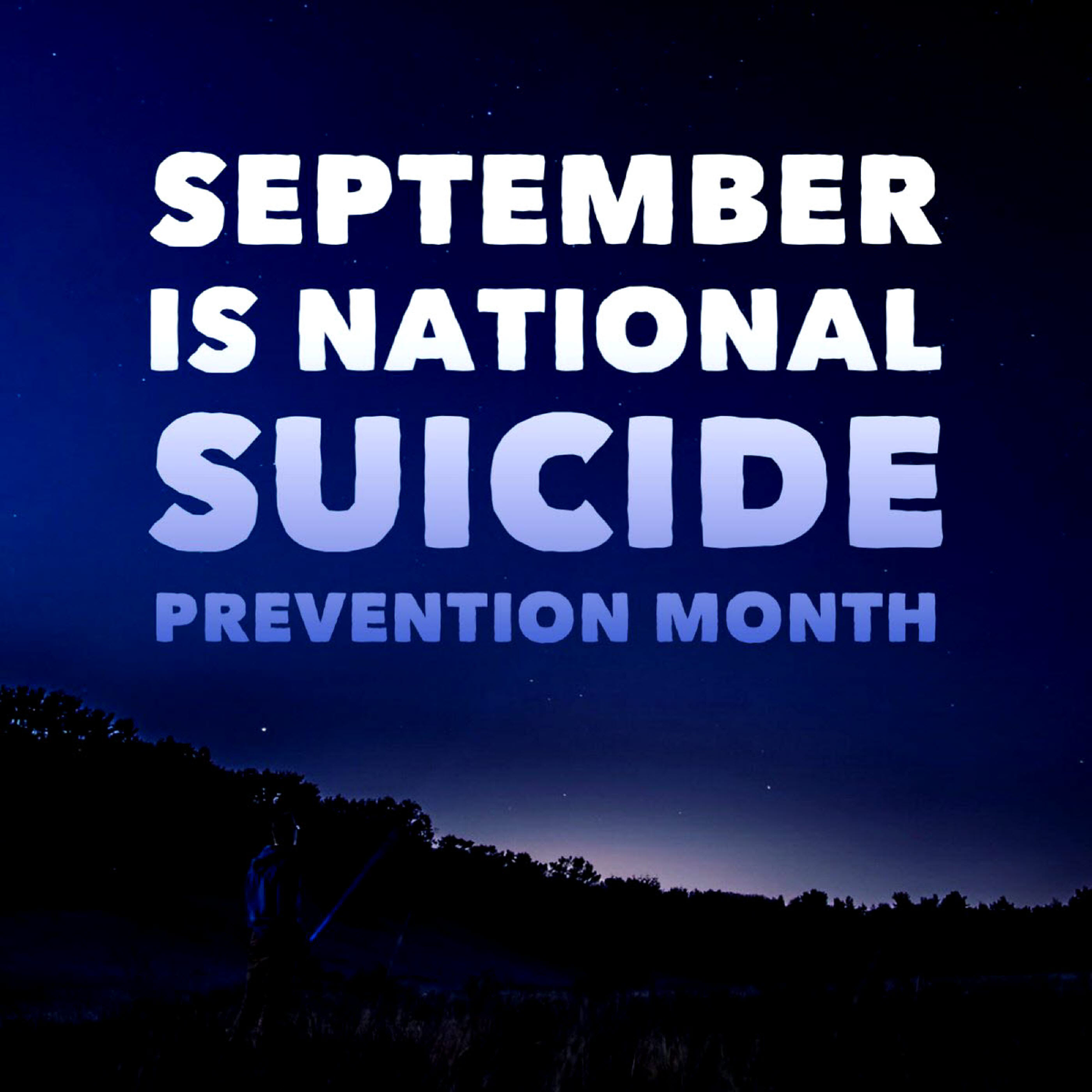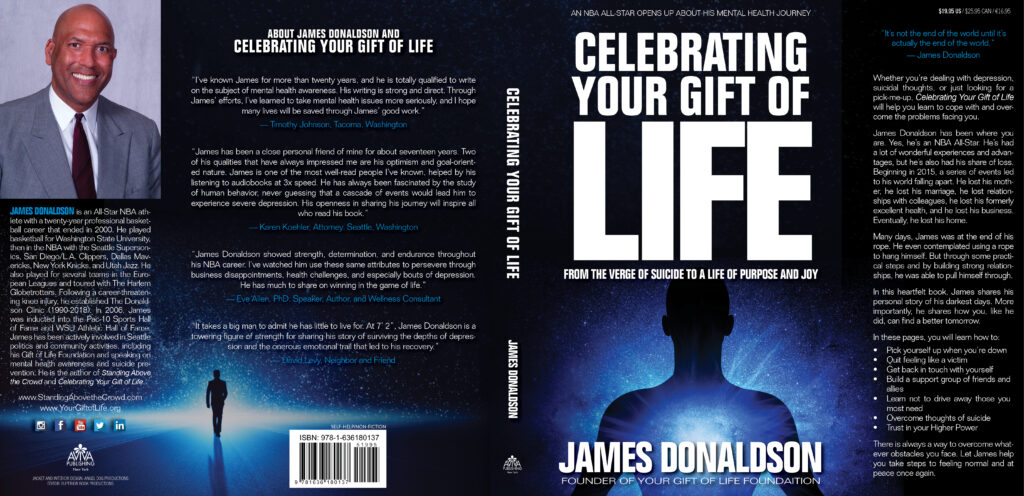

By Justine Cowan
Walter Reed National Military Medical Center, BETHESDA, Md – September is National Suicide Prevention Month to raise awareness and increase knowledge about a problem that has sadly affected too many people across the country.
In observance of National Suicide Prevention Month, Walter Reed will host a “Heart of Hope and Resource Fair” on Sept. 9 and 16 from 11:30 a.m. to 2 p.m. both days in the America lobby (Bldg. 19, first floor). Also, there will be the following staff/provider suicide prevention training offered at Walter Reed:
• SafeTALK Workshop, a half-day training focusing on the four basic steps in suicide alertness skills to create a life-saving connection, will be held on Sept. 4 and 25 in Bldg. 85T, second floor, room C209.
• Applied Suicide Intervention Skills Training (ASIST), a two-day training offering participants information to identify people at risk of suicide and tips to intervene to help them stay safe, will be held on Sept.17-18 and Nov. 12-13 in Bldg. 85T, second floor, room C209.
• Additional staff suicide prevention training (hosted by Columbia University) will be held on Sept. 24 (11 a.m.-1 p.m.) in the Memorial Auditorium.
#James Donaldson notes:
Welcome to the “next chapter” of my life… being a voice and an advocate for #mentalhealthawarenessandsuicideprevention, especially pertaining to our younger generation of students and student-athletes.
Getting men to speak up and reach out for help and assistance is one of my passions. Us men need to not suffer in silence or drown our sorrows in alcohol, hang out at bars and strip joints, or get involved with drug use.
Having gone through a recent bout of #depression and #suicidalthoughts myself, I realize now, that I can make a huge difference in the lives of so many by sharing my story, and by sharing various resources I come across as I work in this space. #http://bit.ly/JamesMentalHealthArticle
Find out more about the work I do on my 501c3 non-profit foundation
website www.yourgiftoflife.org Order your copy of James Donaldson's latest book,
#CelebratingYourGiftofLife: From The Verge of Suicide to a Life of Purpose and Joy

www.celebratingyourgiftoflife.com
Link for 40 Habits Signup
bit.ly/40HabitsofMentalHealth
If you'd like to follow and receive my daily blog in to your inbox, just click on it with Follow It. Here's the link https://follow.it/james-donaldson-s-standing-above-the-crowd-s-blog-a-view-from-above-on-things-that-make-the-world-go-round?action=followPub
Suicide is a leading cause of death and affects people of all ages, according to the Centers for Disease Control and Prevention (CDC). It’s a major public health concern that not only claims the life of the victim, but can also have long-term repercussions on family, friends and communities.
Walter Reed’s Directorate of Behavioral Health and Department of Pastoral Care offer services to assist people with challenges. The Directorate of Behavioral Health includes psychiatry, psychology and social work. Regarding the holistic benefits of behavioral health care provided at Walter Reed, Army Col. (Dr.) Aniceto Navarro, who heads the directorate. “There are Behavioral Health providers in different clinics now, embedded there, working hand-in-hand with medical and surgical staff to help address the patients with challenges of new diagnoses,” he explained.
The Department of Pastoral Care, a robust team of military chaplains, enlisted religious program specialists and contracted religious professionals from various faiths, provides care spiritual care and support to patients, staff, service members, and their families at Walter Reed, with the goal of developing and strengthening personal and spiritual resiliency for facing life’s many challenges.
In addition to religious services and pastoral care, Pastoral Care provides a number of “life- skills” trainings and workshops, including suicide awareness and prevention education. Through the Navy’s Chaplains Religious Enrichment Development Operation (CREDO), chaplains and religious program specialists receive training to facilitate suicide prevention and intervention workshops known as SafeTALK and Applied Suicide Intervention Skills Training (ASIST), designed to enable participants better recognize and help those who may be struggling with thoughts of suicide.
U.S. Navy Chaplain (Lt.) Luis Martinez, DPC’s division officer, explained that SafeTALK is a half-day interactive training that focuses on “suicide alertness” and teaches participants how to better identify persons at risk and connect them to other resources for intervention, while ASIST is an intensive two-day training program that teaches participants how to do suicide interventions for those at risk.
Both SafeTALK and ASIST teach practical skills based on evidence-based research. For instance, if you notice a person’s behaviors are different from that person’s normal behaviors (e.g., withdrawn, change in attitude, giving away possessions, etc.), the person may be consciously or unconsciously inviting you to ask them if they are considering suicide. Will you care enough to ask, “Are you thinking of suicide/killing yourself?”
“Believe it or not, it seems that the hardest thing for someone to do is to ask that very important question in an explicitly direct way,” said U.S. Navy Chaplain (Capt.) Chris Hester, chief of Pastoral Care. “Most people actually avoid asking about suicide directly, which may mean that they really do not want to know the answer. Asking the question directly in a nonjudgemental manner gives the person at risk permission to discuss this sensitive subject and also means that you are willing to listen.” SafeTALK and ASIST teach participants effective ways for asking the question of suicide directly and also how to do so tactfully so that it does not seem abrupt.
Hester and Martinez noted that everyone experiences times of trouble and significant loss, so anyone can be at risk for suicide. It is important to remain on suicide alert for all persons, regardless of rank or pay grade, they added.
Hester also mentioned the importance of “spiritual readiness” or “spiritual fitness” for the military, noting that there is significant data and evidence-based research indicating that religion and spirituality can have positive impact on both mental and physical health, including reducing suicide within the ranks.
Fellows in the Social Work Fellowship Program are responsible for arranging to have staff training conducted by Columbia University at Walter Reed. The Columbia Suicide Severity Risk Scale (CSSRS) is a widely used tool for assessing suicide risk.
In addition, the sociology and psychiatry fellows plan the annual labyrinth suicide awareness walk at Walter Reed. The walk encourages participants to reflect while walking the labyrinth in the America Bldg.’s courtyard, picking up a rock, writing a message or the name of a suicide victim on the rock, and putting it down as a way of symbolically releasing the grief and inspiring hope.
For more information about Pastoral Care at Walter Reed, call 301-295-1510. For information about Behavioral Health, call the Adult Outpatient Behavioral Health Clinic at 301-295-0500, or the Child & Adolescent Outpatient Behavioral Health Clinic at 301-295-0576.
IF YOU OR SOMEONE YOU KNOW IS IN CRISIS:
Call or text the 988 Suicide and Crisis Lifeline at 988 or chat at 988lifeline.org. The Lifeline provides free and confidential support to people in suicidal crisis or emotional distress 24 hours a day, 7 days a week, across the United States.
Call 911 in life-threatening situations.

https://standingabovethecrowd.com/james-donaldson-on-mental-health-suicide-is-preventable-anyone-can-make-a-difference-september-is-national-suicide-prevention-month/


No comments:
Post a Comment